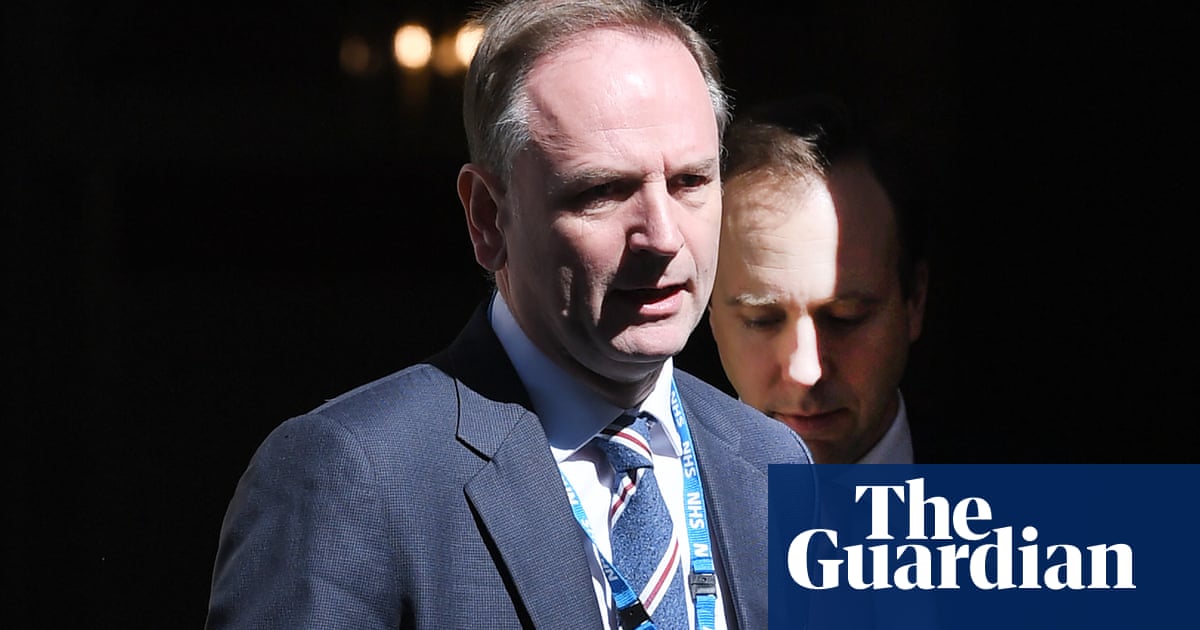
Matt Hancock has laid out his plan for a wholesale reorganisation of the NHS in England which will centralise power in ministerial hands.
The plan has broad Tory support but Labour questioned the timing of the move, with the health service still reeling from coronavirus.
Announcing the blueprint – which undoes much of the last structural change in NHS England brought in under David Cameron – the health secretary told MPs that it was intended to better integrate health and social care and do away with irksome bureaucracy.
Saying the plans had been worked out with NHS staff and local authorities, Hancock was nonetheless open about the newly top-down approach to managing the health system.
“Medical matters are matters for ministers,” Hancock told MPs. “NHS England will have a clinical and day-to-day operational independence, but the secretary of state will be empowered to set direction for the NHS and intervene where necessary.”
The risks of imposing such sweeping change as the health service is still coping with what Hancock called the greatest challenge in its history was highlighted by NHS England data released on Thursday showing that almost a third of all people who have needed hospital care for Covid during the pandemic to date were admitted in January.
There were 101,956 new Covid-19 admissions in January, accounting for 29% of all admissions between March 2020 and the end of last month. Mike Adams, the Royal College of Nursing’s England director, said it was “staggering” that so many people needed Covid treatment in the space of a month.
Hancock argued that coronavirus had helped highlight the need for the NHS changes, especially better connectedness between health and social care, and greater political oversight.
“It strengthens accountability to this house, and crucially it takes the lessons we have learned in this pandemic of how the system can rise to meet the huge challenges and frames a legislative basis to support that,” he said of the plan.
But the shadow health secretary, Jonathan Ashworth, questioned the timing of the move. “We’re in the middle of the biggest public health crisis our NHS has ever faced, staff on the frontline are exhausted and underpaid. The Royal College of Nursing says the NHS is on its knees,” he said. “And the secretary of state thinks this is the right moment for a structural reorganisation of the NHS.”
Ministers are discussing offering Sir Simon Stevens a new role as an international ambassador for the NHS when he stands down as the chief executive of NHS England, the Guardian understands.
Senior NHS sources said Stevens, who is expected to leave later this year after seven years in the post, would be ideal for such a role, which ministers see as a way to boost Britain’s soft power globally.
One said: “Given how admired the NHS is across the globe, and how well it’s done during the pandemic, for example on the vaccination campaign and flexing its intensive care capacity up and down, an ambassador could potentially capitalise on people wanting to know about how well the NHS has done and how it’s done it.
“You can see Britain being able to exert some soft power overseas by having Simon as a fantastic ambassador and thought leader on how you build effective national health services. And you can see why a globally confident post-Brexit Britain is looking for places it can exert soft power.”
While the reform plan was welcomed by every Conservative MP who spoke in the Commons, questions were raised about the oversight of so-called integrated care systems, local bodies responsible for commissioning and funding health in that area.
Jeremy Hunt, the former health secretary who now chairs the Commons health committee, said the integrated care systems would be very powerful and asked how local people would be able to gauge the quality of care – and if Hancock could consider ratings systems, as for hospitals.
“It is nonetheless the right thing to do, and a brave thing to do,” said Hunt, who began his speech by praising staff at his local hospital in Surrey who had treated him that morning after he slipped during a run and broke his arm.
Sarah Wollaston, Hunt’s predecessor as health committee chair, who was a Conservative and then Liberal Democrat MP before leaving the Commons in 2019, also praised the broad direction of the plans, saying they brought a “welcome end to expensive and time-consuming contracting rounds”.
The white paper unveiled by Hancock “mostly reflects changes asked for by NHS that needed legislative change but also one government add that wasn’t asked for, greater powers for ministers to meddle,” she added.
Prof Sir Chris Ham, a health policy academic who formerly ran the King’s Fund thinktank, said that while it was correct to reverse the Cameron-era structure, the plans “will not provide the solution that many of us have been arguing for on social care because successive governments have ducked that.”
Hancock said the coronavirus crisis had emphasised the need for a more holistic approach to population-wide health, and he portrayed the plans as implementing the desires of NHS staff, councils and others. “We have listened, and these changes reflect what the health and care family have been asking for,” he said.
The forthcoming health and care bill will also abolish the duty for local NHS bodies to put contracts for services out to tender, which health service leaders have criticised as a destabilising waste of time, effort and money for them as they have seen private firms undercut NHS care providers to win business.
Helen Buckingham, the Nuffield Trust health thinktank’s director of strategy, said: “On the one hand today’s proposals, which seek to reduce competition and enhance collaboration, might see a reduced role for private sector providers in bidding for NHS work. But this is likely to be offset by the role the private sector is almost certain to play in addressing the spiralling waiting lists caused by the legacy of Covid-19.”












